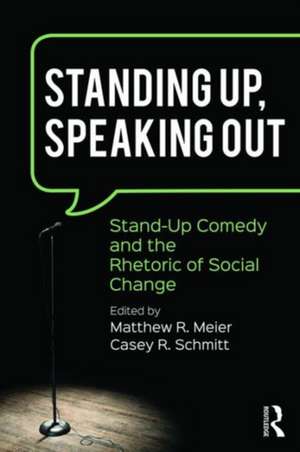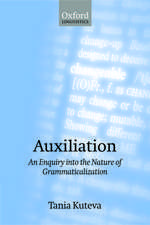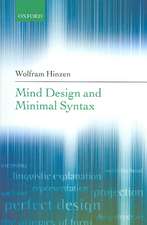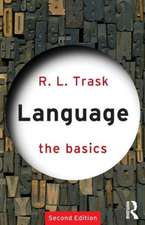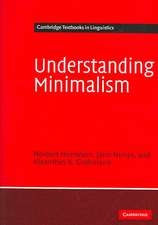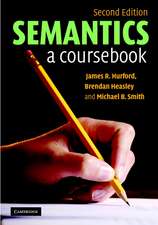Standing Up, Speaking Out: Stand-Up Comedy and the Rhetoric of Social Change
Editat de Matthew R. Meier, Casey R. Schmitten Limba Engleză Paperback – 27 oct 2016
| Toate formatele și edițiile | Preț | Express |
|---|---|---|
| Paperback (1) | 466.45 lei 6-8 săpt. | |
| Taylor & Francis – 27 oct 2016 | 466.45 lei 6-8 săpt. | |
| Hardback (1) | 1057.09 lei 6-8 săpt. | |
| Taylor & Francis – noi 2016 | 1057.09 lei 6-8 săpt. |
Preț: 466.45 lei
Nou
Puncte Express: 700
Preț estimativ în valută:
89.25€ • 93.19$ • 73.87£
89.25€ • 93.19$ • 73.87£
Carte tipărită la comandă
Livrare economică 05-19 aprilie
Preluare comenzi: 021 569.72.76
Specificații
ISBN-13: 9781138100299
ISBN-10: 1138100293
Pagini: 284
Dimensiuni: 152 x 229 x 19 mm
Greutate: 0.39 kg
Ediția:1
Editura: Taylor & Francis
Colecția Routledge
Locul publicării:Oxford, United Kingdom
ISBN-10: 1138100293
Pagini: 284
Dimensiuni: 152 x 229 x 19 mm
Greutate: 0.39 kg
Ediția:1
Editura: Taylor & Francis
Colecția Routledge
Locul publicării:Oxford, United Kingdom
Public țintă
UndergraduateCuprins
SECTION I: THE RHETORICAL POTENTIALS OF STAND UP
1. Late Night Apologia: A Critical Analysis of David Letterman’s October 1st, 2009 On-Air Revelation-Confession – Casey R. Schmitt (collection co-editor)
2. Rhetoric of Racial Ridicule in an Era of Racial Protest: Don Rickles, the "Equal Opportunity Offender" Strategy, and the Civil Rights Movement – Raúl Pérez
3. What's the Deal with Liberals?: The Discursive Construction of Partisan Political Identities in Conservative Stand-Up Comedy - Ron Von Burg & Kai Heidemann
4. The Comedic Prince: The Organic Intellectualism of Bill Hicks – Aaron Duncan & Jonathan Carter
5. When Can Rape Be Funny?: The Limits of Dark Humor and the Rhetoric Daniel Tosh’s Rape Joke - Christopher Medjesky
6. "Would You Want Your Sister to Marry One of Them?" Whiteness, Stand-Up and Lenny Bruce – Matthew R. Meier (collection co-editor) & Chad M. Nelson
RESPONSE: Stephen Olbrys Gencarella, University of Massachusetts Amherst
SECTION II: STAND-UP AS A SITE OF INTERVENTION AND SOCIAL CHANGE
7. "No Damn Mammy, Moms!" Rhetorical Re-invention in the Stand-up Comedy of Jackie "Moms" Mabley – Abbey Morgan
8. Teasing the Funny: Native American Stand-Up Comedy in the 21st Century – Amanda Morris
9. "You Gotta Get Chinky with It!": Margaret Cho’s Rhetorical Use of Humor to Communicate Cultural Identity – Lacy Lowrey & Valerie Renegar
10. If Laughs Could Kill: Eddie Izzard and the Queer Art of Comedy – Christopher Gilbert
11. Humor as an Activist Style: Dick Gregory and the Civil Rights Movement – Jonathan P. Rossing
12. Louis C.K.'s "Weird Ethic": Kairos and Rhetoric in the Network - Jim Brown
RESPONSE: Alberto González, Bowling Green State University
CONCLUSION: [To be titled] – Joanne Gilbert, Alma College
INDEX
1. Late Night Apologia: A Critical Analysis of David Letterman’s October 1st, 2009 On-Air Revelation-Confession – Casey R. Schmitt (collection co-editor)
2. Rhetoric of Racial Ridicule in an Era of Racial Protest: Don Rickles, the "Equal Opportunity Offender" Strategy, and the Civil Rights Movement – Raúl Pérez
3. What's the Deal with Liberals?: The Discursive Construction of Partisan Political Identities in Conservative Stand-Up Comedy - Ron Von Burg & Kai Heidemann
4. The Comedic Prince: The Organic Intellectualism of Bill Hicks – Aaron Duncan & Jonathan Carter
5. When Can Rape Be Funny?: The Limits of Dark Humor and the Rhetoric Daniel Tosh’s Rape Joke - Christopher Medjesky
6. "Would You Want Your Sister to Marry One of Them?" Whiteness, Stand-Up and Lenny Bruce – Matthew R. Meier (collection co-editor) & Chad M. Nelson
RESPONSE: Stephen Olbrys Gencarella, University of Massachusetts Amherst
SECTION II: STAND-UP AS A SITE OF INTERVENTION AND SOCIAL CHANGE
7. "No Damn Mammy, Moms!" Rhetorical Re-invention in the Stand-up Comedy of Jackie "Moms" Mabley – Abbey Morgan
8. Teasing the Funny: Native American Stand-Up Comedy in the 21st Century – Amanda Morris
9. "You Gotta Get Chinky with It!": Margaret Cho’s Rhetorical Use of Humor to Communicate Cultural Identity – Lacy Lowrey & Valerie Renegar
10. If Laughs Could Kill: Eddie Izzard and the Queer Art of Comedy – Christopher Gilbert
11. Humor as an Activist Style: Dick Gregory and the Civil Rights Movement – Jonathan P. Rossing
12. Louis C.K.'s "Weird Ethic": Kairos and Rhetoric in the Network - Jim Brown
RESPONSE: Alberto González, Bowling Green State University
CONCLUSION: [To be titled] – Joanne Gilbert, Alma College
INDEX
Descriere
In recent decades, some of the most celebrated and culturally influential American oratorical performances have come not from political leaders or religious visionaries, but from stand-up comics. Even though comedy and satire have been addressed by rhetorical scholarship in recent decades, little attention has been paid to the stand-up. This collection is an attempt to further cultivate the growing conversation about stand-up comedy from the perspective of the rhetorical tradition. It brings together literatures from rhetorical, cultural, and humor studies to provide a unique exploration of stand-up comedy that both argues on behalf of the form’s capacity for social change and attempts to draw attention to a series of otherwise unrecognized rhetors who have made significant contributions to public culture through comedy.
